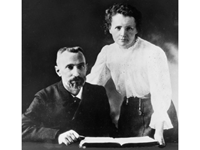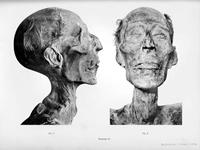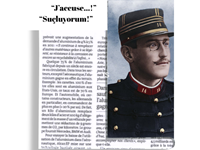Scientists have found an extraordinary 'living drug' in the blood of an end-stage cancer survivor.
A year after receiving "the biggest breakthrough in cancer treatment in over 50 years", this patient's body was still protected by a fleet of boosted killer immune cells known as T-cells.
Researchers from Cardiff University in the UK have discovered that these specialised T-cells can be much better than average T-cells at recognising and attacking tumours. They may even be able to defeat several different types of cancer at the same time from various angles.
"Our findings really surprised us because no one knew that individual T-cells could recognise cancer cells by using several different cancer-associated proteins at the same time," says biologist Andy Sewell from Cardiff University.
"We wanted to know how some patients with end-stage cancer treated with [tumour-infiltrating lymphocyte] therapy successfully cleared their cancer, and we started looking for answers."
Over the last decade tumour infiltrating lymphocyte (TIL) therapy has emerged as a powerful new way to possibly eradicate end-stage tumours. TIL therapy involves taking a patient's own white blood cells directly from their tumour and artificially growing and enhancing them to better attack the cancer.
In clinical trials, the therapy appears to work more than 80 per cent of the time. Despite these incredible results, scientists still don't know how the therapy works at the cellular level.
Researchers in Cardiff have been trying to understand this for years and have now achieved a breakthrough.
Analysing the results of phase I and II clinical trials in which 31 patients with malignant melanoma received TIL treatment, researchers found that patients who successfully cleared their cancer showed strong T-cell responses even after one year.
T-cells from one of these patients were remarkably 'versatile', showing the potential to respond to most types of cancer, not just melanoma.
"Importantly, we saw a large number of versatile T-cells in the blood of cancer survivors," says Sewell.
"To date, we have not found such multiforked T-cells in people whose cancer has progressed."
To confirm what is really going on, Sewell and his colleagues now need to carefully watch these multiforked T-cells attack cancer in the laboratory. Only then will they be able to determine whether these immune cells are responsible for the wonderful results of the TIL treatment.
"We hope to investigate whether engineered multiforked T-cells can be used to treat a wide range of cancers, similar to the way engineered CAR-T cells are used to treat some types of leukaemia," says Cardiff University immunologist Garry Dolton, one of the lead authors of the study.
CAR-T cells are chimeric antigen receptor T-cell therapies and are approved by the US Food and Drug Administration as a treatment for blood cancer.
CAR-T therapy is slightly different from TIL therapy because it reprogrammes specific T-cells to target specific parts of the cancer cell.
Because TIL T-cells come directly from a solid tumour, they are more diverse and scientists hardly need to tinker with their attack mechanisms. Perhaps this is what makes them so effective against so many types of cancer.
"So far the number of patients is small, but it is possible that versatile T-cells are associated with complete remission or freedom from cancer," Sewell hopes.
Source: https://www.sciencealert.com/


 Nielawore
Nielawore









Yorumlar
ay hadi hayırlısı
Yorum yazmak için lütfen giriş yapınız